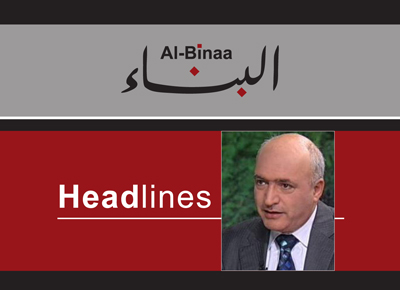Washington and Ankara Defend Jabhat al-Nusra, Blame the Syrian State / Arab Group and Russia Support Syria’s Stance, Condemn Nusra’s Terrorist Attacks
Washington and Tel Aviv Reaffirm Commitment to Ceasefire After Resistance’s Response to Violations

December 04, 2024
The political editor wrote
The military developments in Lebanon and Syria continue to reveal that the unified war waged by the occupying entity and terrorist groups – shifting between them – is a testament to the strategic threat posed by the resistance forces. This evolving threat challenges the decades-long Israeli hegemony over the region, supported unconditionally by Washington. With the occupying entity forced to admit its inability to sustain the war in Lebanon, the baton has been passed to terrorist groups in Syria, pursuing the same objectives.
While tactically, the occupying army’s military activities appear to be limited to violations of the ceasefire agreement and the significant gains made by terrorist groups in their Aleppo offensive, it is clear that the resistance axis’s capabilities loom large. This backdrop explains the occupying entity’s reaffirmation of the ceasefire after the resistance issued a warning response to repeated violations.
Simultaneously, Turkey, a staunch supporter of terrorist groups, has been unable to articulate political goals commensurate with the scale of the on-ground offensive. Instead, Ankara retreated to a defensive narrative, blaming the Syrian state for the escalation. This comes after receiving firm messages from Russia and Iran affirming their unconditional support for Syria, effectively pressuring Turkey to either engage directly in the confrontation or take responsibility for withdrawing terrorist groups from their expanded positions as a precondition for stabilising the situation.
In the UN Security Council’s discussions on Syria, Washington and Ankara aligned behind a unified stance defending Jabhat al-Nusra while attacking the Syrian state and holding it responsible for the deteriorating situation. This provoked a sharp Russian response accusing those unwilling to name Jabhat al-Nusra or HTS as terrorist organisations of complicity enabling terrorism. Meanwhile, the Lebanese representative, speaking on behalf of the Arab Group, declared support for Syria’s fight against terrorism and called for condemnation of the terrorist attacks on Aleppo and Idlib.
On the ground, a significant meeting between the chiefs of staff of the Syrian, Iranian, Russian, and Iraqi armies underscored the presence of a military alliance actively involved in this war. Politically, the Iraqi Prime Minister made a notable statement, asserting that his government would not stand idle in the face of the dangers posed by terrorist groups in Syria.
Moscow and Tehran reinforced this position through statements from their presidents, expressing full support for Syria against terrorist groups. Iran’s Foreign Minister further declared his country’s readiness to escalate its military support for Syria, even to the extent of deploying troops if requested by Damascus.



